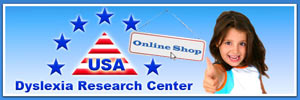Understanding dyslexia: Learn how to best help your child
Just what is dyslexia? There are many misconceptions out there.
“Dyslexia is a type of specific learning disorder that impacts reading,” said Dr. Sheldon H. Horowitz, director of learning disability resources at the National Center for Learning Disabilities. “It is not a disease, nor is it contagious. It is not something that goes away — you don’t outgrow it — and it is not the result of watching too much TV, laziness, vision or hearing problems, or low intelligence.
“The medical community refers to it as a disorder and the educational community refers to it as a specific learning disability. Others are dycalculia if the area of weakness is math, dysgraphia if the problem is writing and written expression.”
Because dyslexia is not a disease, there is not “one treatment for dyslexia. It can’t be cured, especially because dyslexia is not a medical or psychological problem,” said Livia R. Pailer-Duller, executive director of the American Dyslexia Association. “It needs to be addressed through training of the attention span, of sensory perceptions and the practice of reading and spelling on the educational level.”
Rather, “dyslexia is a genetic disposition, which means that dyslexia is inherited,” she said. “Dyslexic individuals have different sensory perceptions. These different sensory perceptions are the reason why the attention of dyslexic people diminishes when they come in contact with letters which in turn causes them to make errors in reading and spelling.”
What it is
There is no one profile of dyslexia, but typically people have trouble sounding out words, blending letter sounds into words while reading, mastering the rules of spelling and grammar and expressing what they know in written formats, Horowitz said.
“Some people with dyslexia are accurate readers at a slower pace but struggle to understand what they have read because they expend all of their mental resources figuring out what the words are and keeping track of what they are reading,” he said. “Others are slow, labored readers but do OK with comprehension.
“People with dyslexia do not have vision problems that are causing them to struggle in reading. The problem stems from the way that printed text and the sounds of the language are processed in their brains. It’s not that their brains can’t do this processing, it’s that it is done in ways that are inefficient.”
Also, dyslexia is not intelligence-related.
“Dyslexics are not less intelligent than non-dyslexics — quite the opposite is often true,” Pailer-Duller said. “However, dyslexics often score low on intelligence tests because these tests attempt to measure intelligence by measuring sensory perceptions. But these are different in dyslexic individuals, which does not make them stupid, just that the test is inadequate.”
How to help
For people with dyslexia, “parents are absolutely critical and family support is hugely important,” Horowitz said. “Remember: dyslexia is what the child has, not who they are. They have areas of strength and interest just like everyone else, and in some cases, because they work so hard to compensate for their areas of challenge, they can be very high achievers and role models for their peers and for the general community.
Parents need to understand as much as they can about dyslexia, abandon any feelings of guilt, and help their child to become a strong and effective self-advocate.”
Schools are not required to give dyslexics extra help, but in some states an individualized education plan is possible where dyslexic students receive help on standardized testing, Pailer-Duller said.
As an example, “a dyslexic child with reading problems can receive additional assistance for reading instructions to solve math problems.
However, dyslexic students have to do the reading portion of the standardized test themselves — without help.
So this partial help does not go a long way,” she said.
Teachers, who are knowledgeable about dyslexia, can do a lot within the school setting to help a dyslexic child along.
“Examples are that grading focuses on content and expression and not on spelling. Teachers should avoid calling on dyslexic children to read aloud in front of the whole class if the child is not comfortable with it,” Pailer-Duller said. “It is very important to understand that the schoolteacher can only do so much. A dyslexic child will always need additional individualized training, either with a specialist or with parents.”
Written by Melissa Erickson from Family Magazin, April 2014 issue, Gatehouse Media
Category: Dyscalculia, Dyslexia, News








